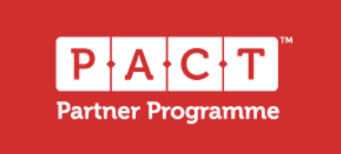International Media Coverage for TFS’ PACT
Readers of leading trade magazine for the global panel manufacturing and processing sector, Wood Based Panels International, have been learning more about TFS’ PACT Partner Programme, in a double-page editorial feature in the August/September 2019 edition of the publication.
WBPI editor, Stephen Powney, interviewed TFS’ global sales director, John Shorthouse, about the first comprehensive thermal fluid risk-management package, including advice, implementation and compliance paperwork, designed to enable companies to operate efficiently, cost-effectively and in accordance with health and safety legislation.
TFS’ first began working in the panel board sector in the 1990s, and in recent years, has made particular strides in this area, undertaking projects with Latvijas Finieris in Latvia along with other organisations in Germany, France, Spain and South Africa.
It was with panel manufacturing and processing customers such as IKEA, LP Building Solutions, Georgia-Pacific, Norbord and Arauco, that TFS developed PACT, which was trialled at Norbord’s Cowie plant and is now running throughout the company’s international operation as well elsewhere.
Standing for Professional Accreditation Compliance Team, the PACT Partner Programme enables process manufacturers to benefit from a comprehensive, retained package of thermal fluid system risk management services.
Fifty four percent of all thermal fluid-related fires and explosions are due to poor system maintenance (FM Global, January 2006, Heat Transfer by Organic and Synthetic Fluids).
PACT was developed to enable panel board manufacturers to protect their assets and ensure production reliability while minimising the risk of fire and explosion associated with the operation of the thermal fluid systems which transfer heat around their manufacturing plants.
The risk of fire and explosion relates to the fact that thermal fluid systems’ operating temperatures are typically higher than the closed cup flash point of the thermal oil within – the minimum temperature at which, in the presence of a source of ignition, such as electrical sparks or pump failure, a fluid’s vapours will ignite.
Thermal oils degrade over time, lowering their flash points and becoming flammable; John explained that a fluid with a 2100 flash point could, over time, see it shrink to 400.
By employing PACT to minimise this risk – along with those of system inefficiency and breakdown – wood panel manufacturers are able to achieve and maintain compliance with health and safety legislation such as ATEX (Atmosphère Explosible), DSEAR (Dangerous Substances and Explosive Atmospheres Regulations) and PUWER (Provision and Use of Work Equipment Regulations), while protecting their assets, ensuring operational efficiency and minimising their insurance premiums.
Comprising four stages – Essential, Active, Total and Plus – PACT begins with knowledge-building via regular oil sampling and analysis, risk identification and training, offers routine procedural reviews and facilitates continuous improvements in thermal oil risk management via the establishment of the bespoke PACT Partner Programme.
Customers will soon be able to easily access their PACT reports on an online portal via a new app, allowing them to maintain up-to-date information on their thermal fluid system and legislative compliance.
If analysis of a customer’s oil demonstrates that the flash point has fallen to an unacceptable level, TFS deploys HTfluidfit, its thermal fluid conditioning service, which provides a quick, cost-effective, environmentally sustainable alternative to fluid replacement, extending fluid life by a factor of at least 10, saving customers up to 70% of their thermal fluid costs.
Conditioning can take place at full operating temperature, precluding customer downtime; in the feature, John explained that just one hour’s downtime for a particleboard mill equates to £7,500 lost production.
If you would like to find out more about PACT and how it could help your company to operate efficiently, cost-effectively and in accordance with health and safety legislation, please contact our team on 01298 815862.


